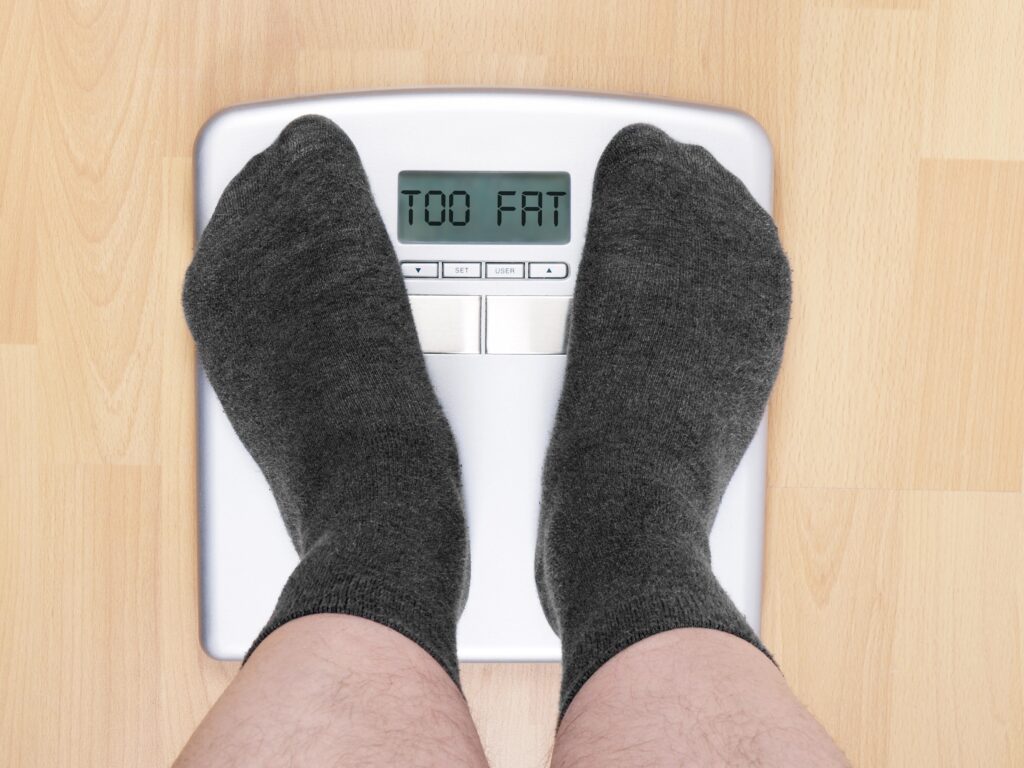Introduction:
Embarking on a journey of weight loss for the over 50s presents unique challenges. As we cross the half-century mark, men experience significant body changes, affecting how they manage and maintain a healthy weight. The tactics that once yielded results in our younger days may no longer be as effective. This guide aims to empower men over 50 with practical and attainable advice tailored to meet the nuances of weight loss at this stage in life.
The Challenges to Weight Loss for Over 50s
Metabolic Slowdown
A pivotal aspect of ageing is the inevitable metabolism slowdown. This biological shift means that the body starts to burn calories noticeably slower. Such a change makes weight management more complex, as the dietary and exercise habits that once worked might no longer be as effective. Understanding and adapting to this new metabolic reality is critical to adjusting calorie intake and exercise routines to align with the body’s current metabolic rate.

Muscle Loss
Post 50, men often experience a gradual loss of muscle mass, a condition known as sarcopenia. This natural decline affects strength and mobility and further decreases metabolic rate since muscle tissue burns more calories than fat tissue, even at rest. Reducing muscle mass means the body needs fewer calories to maintain weight, making weight loss and muscle maintenance a dual challenge. Regular strength training and a protein-rich diet are vital strategies to counteract muscle loss and support muscle growth or maintenance.
Hormonal Changes
Hormonal shifts are another significant factor in the weight loss journey for men over 50. Testosterone, the hormone crucial to muscle mass, fat distribution, and bone density, naturally declines with age. This decline can lead to increased body fat, reduced muscle strength, and changes in energy levels, all of which can impact weight and overall body composition. Understanding these hormonal changes is essential in tailoring a weight loss approach that addresses calorie intake, exercise, and overall hormonal health. Consulting with healthcare providers for advice on managing hormonal imbalances can be beneficial in optimising weight loss efforts.
By addressing these challenges head-on with informed strategies and lifestyle adjustments, men over 50 can effectively navigate the path to weight loss and improved health.

Effective Strategies for Weight Loss for Over 50s
Nutrition-Focused Diet
A cornerstone of weight loss for over 50s is a well-balanced, nutrition-rich diet. Prioritise a high-protein intake to support and maintain muscle mass, which is crucial for increasing your metabolic rate. Incorporate a variety of fruits, vegetables, and whole grains to ensure a wide range of essential nutrients and fibre, which aid in digestion and satiety. Equally important is the practice of portion control. Understanding and being mindful of portion sizes helps manage calorie intake without the need for strict calorie counting.
Regular Physical Activity
Regular exercise is indispensable for men over 50 looking to lose weight. A combination of cardiovascular exercises, like walking, cycling, or swimming, and strength training is ideal. Cardio exercises help improve heart health and burn calories, while strength training is essential for building and maintaining muscle mass, which helps boost metabolism. Consistency is vital; aim for at least 150 minutes of moderate aerobic or 75 minutes of vigorous activity and strength training exercises at least two days a week.
Hydration
Water is a key element in weight loss for over 50s. Drinking sufficient water aids in proper digestion helps control appetite by promoting a feeling of fullness, and can even slightly boost metabolism. Aim for at least eight glasses of water daily, or more if you are physically active or live in a hot climate.

Quality Sleep for Enhanced Weight Loss
Achieving quality sleep is a pivotal, yet frequently underestimated, component of weight loss for men over 50. Ensuring 7-8 hours of restful sleep each night is essential. Adequate sleep not only regulates hormones that govern appetite but also diminishes the risk of insulin sensitivity, contributing to both physical and mental well-being.
To foster better sleep, establish a consistent sleep routine and create a tranquil bedroom environment. Additionally, minimising exposure to stimulants such as caffeine and electronic devices before bedtime is advised.
For further improvement in sleep quality, consider exploring meditation and mindfulness techniques through resources like the Headspace App. I’ve personally found Headspace to be a valuable tool in enhancing my sleep, which has significantly aided in my overall health and weight loss journey.
Stress Management
Managing stress is essential in the weight loss journey, as high-stress levels can often lead to emotional eating and weight gain. Engaging in activities that reduce stress is vital. This could include outdoor walks, reading, pursuing hobbies, or even practising relaxation techniques like deep breathing or meditation.
Check out our detailed guide on our Headspace Blog for more insights on managing stress effectively. By integrating these strategies into daily life, men over 50 can create a sustainable and practical approach to weight loss, leading to long-term health benefits and improved quality of life.

Professional Guidance
Seeking the advice of healthcare professionals is a critical step in ensuring a safe and effective weight loss journey, particularly for men over 50. This is especially true for those with pre-existing health conditions or those who haven’t engaged in regular physical activity for some time.
Doctor
Your first point of contact should be your Doctor. They can assess your overall health, evaluate pre-existing conditions, and determine how they might influence your plan for weight loss for over 50s. Your Doctor can also perform necessary health screenings to check for any underlying issues that could be affected by or affect your weight loss efforts, such as thyroid function or cardiovascular health.
Dietitian or Nutritionist
A dietitian or nutritionist specialises in food and nutrition. They can help develop a personalised eating plan for your nutritional needs, preferences, and lifestyle. This is particularly important for men over 50, as dietary needs change with age. A dietitian can also provide guidance on portion control, healthy food choices, and strategies to deal with cravings and emotional eating.
Fitness Professional
If you’re new to exercise or have been inactive, consulting with a fitness professional, such as a personal trainer or a physical therapist, is advisable. They can create a tailored exercise program aligning with your fitness level, health conditions, and weight loss goals. They can also teach proper exercise techniques to minimise the risk of injury.

Specialists for Specific Conditions
If you have specific health concerns, such as heart disease, diabetes, or arthritis, consulting specialists in those areas is essential. They can provide tailored advice on managing these conditions while pursuing weight loss and work with your primary care physician and other health professionals to provide a coordinated approach to your overall health.
Mental Health Professional
Sometimes, weight issues are closely tied to emotional or psychological factors. If this is the case, a mental health professional like a psychologist or counsellor can be valuable to your support team. They can help address any underlying emotional issues related to eating, body image, or stress, which can be a significant hurdle in achieving your weight loss goals.
Conclusion – Weight Loss for Over 50s
Remember, each individual’s body and health circumstances are unique, especially in the over-50 age group. Seeking professional guidance is more than just a precaution; it’s a crucial step in creating a plan for weight loss for over 50s, that is effective and tailored to your needs. This personalised approach is vital because what works for one person may not work for another, especially when factors like pre-existing health conditions, medication interactions, and lifestyle differences come into play.
Professional guidance ensures that your journey towards better health is safe and sustainable over the long term. Experts can help you set realistic goals, track progress, and adjust as needed. They can provide invaluable support and motivation, helping you overcome challenges and celebrate milestones.
Moreover, by working with healthcare professionals, you can better understand your body’s responses to different diets and exercise regimes, enabling a more informed and mindful approach to health and wellness. This knowledge empowers you to make lasting changes beyond weight loss, contributing to overall improvements in your quality of life.
In summary, remember that your path is unique as you embark on your weight loss journey. Embrace the journey with patience and persistence, and with the proper professional support, you can achieve a healthier, more active, and fulfilling lifestyle in your 50s and beyond.
If this article captured your attention, why not delve deeper? Discover the benefits and drawbacks of coffee consumption. Continue your journey by clicking on Daily Coffee: Perks & Pitfalls for Men Over 50.
